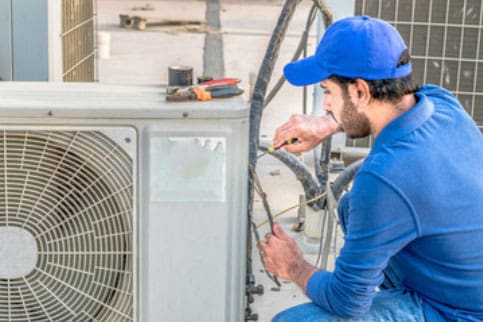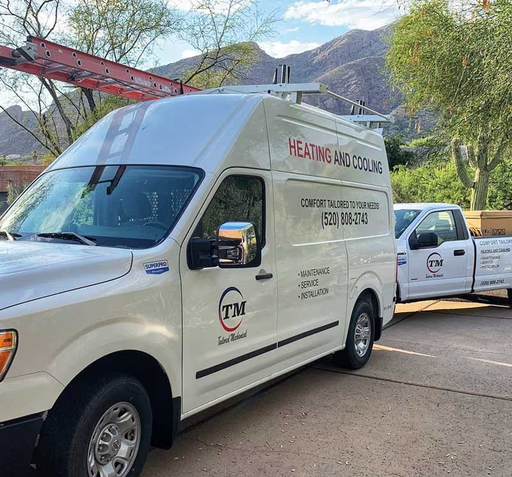When investing in new units, whether it be HVAC systems, appliances, or vehicles, the warranty can often feel like an afterthought. However, understanding what makes a good warranty is paramount to protecting your investment. In this article, we will delve into the nuances of warranties, particularly focusing on coverage options available for new units.
What Makes a Good Warranty? Understanding Coverage Options on New Units
A good warranty is more than just a piece of paper; it's a promise from the manufacturer that they stand behind their product. But what does this promise entail? A solid warranty should offer comprehensive coverage that protects against defects and malfunctions. It should also be easy to understand, with clear terms and conditions.
Understanding Warranty Terminology
Before we dive deeper into what makes a good warranty, let’s break down some common terms you’ll encounter:
- Coverage: This refers to what the warranty will pay for if something goes wrong. Exclusions: These are specific situations or damages that the warranty won’t cover. Duration: The length of time for which the warranty is valid. Transferability: Some warranties can be transferred to another owner if you sell the unit.
Understanding these terms is crucial when evaluating different warranty options on new units.
Types of Warranties Available
Warranties generally fall into several categories:
Manufacturer's Warranty- Typically comes with new purchases. Covers defects in materials and workmanship.
- Offers additional coverage beyond the manufacturer's warranty. Can be purchased at an extra cost.
- Not technically a warranty but offers similar protection. Often includes routine maintenance services.
Components of a Comprehensive Warranty
1. Coverage Scope
A well-rounded warranty should cover both parts and labor for repairs. For instance, when considering HVAC repair in Tucson, you'll want https://tailoredmechanical.com/ a warranty that covers essential components such as compressors and coils along with labor costs to fix them.
2. Duration of Coverage
Most manufacturer warranties last between one to ten years. A longer duration usually indicates confidence in product durability. Tailored Mechanical offers extended warranties tailored to specific needs; always ask about these while purchasing new units.
3. Transferable Options
If you plan to sell your unit down the line, having a transferable warranty can enhance resale value significantly. Buyers often look favorably upon units with active warranties still in place.
The Importance of Exclusions
While reviewing what makes a good warranty, it’s vital to scrutinize exclusions carefully. Certain damages may not be covered under standard policies—such as those caused by misuse or lack of maintenance (like failing to schedule regular HVAC service). Knowing these exclusions helps you make informed decisions about additional coverage or service contracts.
What’s Not Covered? Common Exclusions You Should Know
| Exclusion Type | Description | |----------------------------------|---------------------------------------------------| | Accidental Damage | Any unintentional damage caused by mishaps | | Normal Wear and Tear | Gradual deterioration over time | | Unauthorized Repairs | Issues arising from repairs done by non-certified technicians | | Environmental Factors | Damage due to extreme weather conditions |
Evaluating Warranties by Brand
Different manufacturers have different standards for their warranties. It’s wise to compare policies across brands before making your purchase decision:
- Look at user reviews regarding claims processes. Research how experienced the company is with handling customer complaints related to their warranties.
When searching for an HVAC company in Tucson, consider asking them directly about their preferred brands’ warranties and experiences with claims.
How Does Location Factor Into Warranties?
Your geographical location can greatly impact both your HVAC repair costs and the effectiveness of your warranty. In hotter climates like Tucson, air conditioning systems face more wear and tear due to constant use.
- Make sure your chosen HVAC company in Tucson understands local regulations affecting warranties and repairs.
Assessing Customer Service Quality
A good warranty isn't just about its content; it's about how well companies handle claims or disputes when they arise. Look for companies that provide:
- Clear communication channels Quick response times Friendly customer service representatives
Tailored Mechanical has built its reputation partly on ensuring customer satisfaction through effective claim handling processes.
Lifetime Warranties: Are They Worth It?
Some products come with lifetime warranties, which sound appealing at first glance but often come with caveats:
They may only apply to specific parts rather than entire systems. You might need regular service checks to keep them valid. They could require documentation proving maintenance was done correctly over time.Consider if these conditions align with your long-term plans before committing.
Making an Informed Decision About Your Warranty Choice
It’s essential not only to understand the terms of any potential warranty but also how it aligns with your personal needs and circumstances:
Evaluate your usage patterns (e.g., frequency of use). Think about how long you plan on keeping the unit. Assess financial implications if repairs arise outside typical coverage areas.By analyzing these factors closely, you can fine-tune which type of coverage suits you best!
FAQs About Warranties
1. What should I look for in a good warranty?
Look for comprehensive coverage including both parts and labor, clear duration details, transferability options, and straightforward exclusions.
2. How do I file a claim under my warranty?
Typically you'll need proof of purchase along with documentation showing maintenance was performed regularly—check specifics with your manufacturer or dealer.


3. Can I extend my manufacturer's warranty?
Yes! Many manufacturers offer extended warranties for additional fees which provide extra peace of mind beyond standard coverage durations.
4. What happens if I don’t follow maintenance requirements?
Failing to adhere to recommended maintenance schedules could void parts of your overall coverage; make sure you keep up-to-date records!
5. Is there such thing as “too good” a deal on warranties?
Absolutely! If it sounds too good to be true—like lifetime coverage without any stipulations—proceed cautiously! Always read fine print carefully before signing anything!
6. Are all warranties created equal?
No! Some manufacturers provide much better terms than others based on their reputation; always research brand reliability when considering purchases like HVAC units!
Conclusion
In summary, navigating through what makes a good warranty requires diligence and careful consideration—from understanding terminology to evaluating customer service quality—all while being mindful of regional impacts like those seen here in Tucson!
Investing time upfront ensures maximum protection down the line against costly repairs or unexpected issues so that you're never left out in the cold—or heat! Take advantage today by seeking out reputable HVAC companies like Tailored Mechanical who can guide you through each step confidently!
Did this article help clarify questions surrounding “What Makes a Good Warranty? Understanding Coverage Options on New Units.”? If so share it widely so others can also benefit from informed decisions regarding their investments!